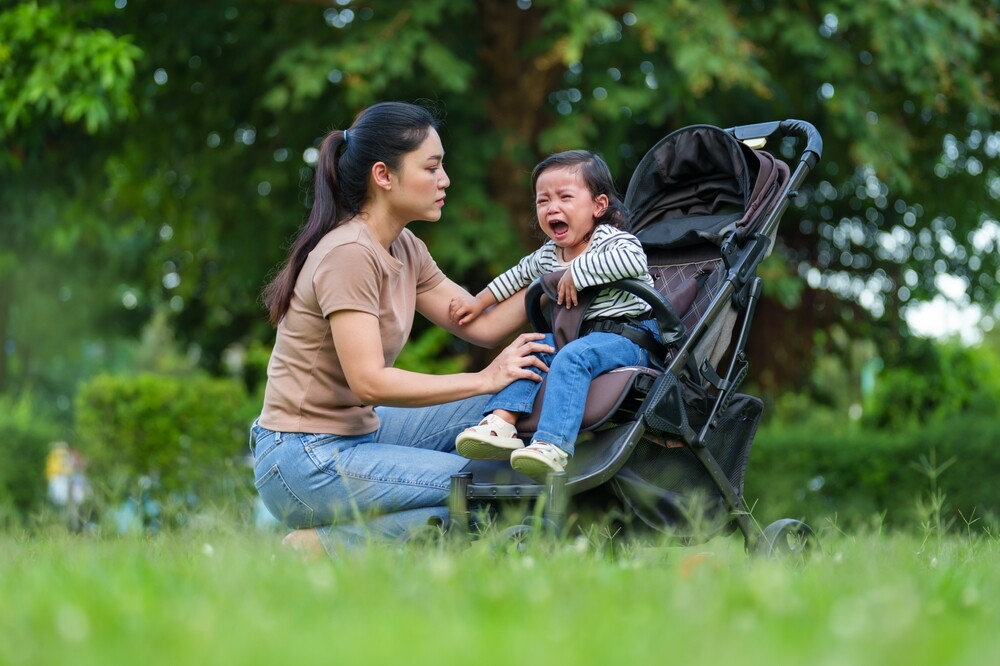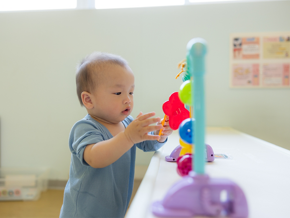
Gentle Parenting Through Toddler Tantrums: What Works (and What Doesn’t)
You've read about gentle parenting and maybe even saved a few social posts. But when your toddler throws another tantrum at the mall, and you're trying to stop yourself from screaming back at your child, it's hard not to wonder: Does this parenting style actually work?
Here's what the latest research says about the approach, including how parents apply it in real life. Spoiler: gentle doesn't mean permissive, and it doesn't mean perfect, either.
Defining Gentle Parenting
There's a lot written about gentle parenting that can leave parents confused. Does it mean endless patience, never saying no, and avoiding all consequences?
In 2024, two developmental psychology professors decided to take a close look and published what they describe as the most in-depth look yet into how parents define and practice this approach. The study, published in PLOS ONE, gathered data from over 100 parents across the United States with at least one child between the ages of 2 and 7.
Nearly 60% of the parents describe gentle parenting as an approach that begins with the parent managing their emotions first. What does this mean? Staying calm when things get loud, choosing not to yell or punish, and modeling the self-control they want to teach. It's about learning how to co-regulate with their child and helping them ride the wave of their big feelings.
The researchers found that for most families, gentle parenting comes down to staying emotionally calm while showing much love. The approach aligns closely with other parenting styles focused on being aware, present, and in tune with your emotions.
Gentle Parenting Strategies for Tantrums

Recognizing your child's emotions shows you're being respectful rather than dismissive of what your child is going through.
So, how do the parents in the study practice gentle parenting when their hitting or screaming toddler tests every ounce of their patience? Here's how that looks in real life.
1. Take a moment to check in with yourself.
Gentle parenting starts with you, according to most parents in the study. Before you talk to your child, take a moment to gather yourself so their feelings don't overwhelm you.
How to do it: Before responding, breathe. Give yourself this self-talk: "My child is having a hard time, not giving me a hard time." Speak low and slow once you're ready.
2. Let the feelings fly safely.
About 40% of parents said they let their child "feel their feelings" without interference. That might mean waiting out a meltdown while staying close rather than rushing to fix, distract, or hush them.
How to do it: Make sure your child is safe, then allow them to cry, scream, or stomp it out. Stay nearby so they know they're not alone. Your job is to give them space to process their emotions.
3. Validate your child's feelings.
Instead of correcting right away, many parents focused on connection first. They knelt, made eye contact, and acknowledged their child's feelings.
How to do it: Say things like, "It's really hard to leave the park, huh?" or "I see how upset you are." This helps your child feel understood, which makes it easier for them to hear any guidance you offer next.
4. Stay present and show affection.
Gentle parenting doesn't mean stepping back. It means staying close, emotionally and sometimes physically. In the study, some parents offered hugs while others just sat nearby, available.
How to do it: Offer hugs, gentle touch, warm words, or sit quietly beside your child as they calmed down. You're sending the message that you’re not going anywhere.
5. Call out the behavior, not your child.
Gentle parenting doesn't avoid discipline. Parents in the study were direct when needed after things calmed down. They told their child clearly when behavior crossed a line without shame, blame, or harshness.
How to do it: If your child hits you or throws their toy angrily, you can say, "Hitting hurts people. We use our words instead," or "It's okay to feel mad, but not okay to throw toys." Keep the language short, kind, and age-appropriate.
6. Use emotional moments to teach.
Some parents in the study viewed their child's emotional outbursts as chances to teach their kids about themselves: what they feel, why they feel it, and how to handle it.
How to do it: Help your child describe their feelings, such as "It seems like you're feeling really frustrated" or "You're super angry now, right?"
7. Redirect to something positive.
Instead of punishing or bribing, gentle parents redirected their child toward connection or a calming activity. This helped kids move forward with support, not shame.
How to do it: Offer something like, "Let's go read together," or "Want to draw how you feel?" Model a new way to express that energy or emotion.
8. Disengage when you need to.
Gentle parenting includes respecting your boundaries, too (also, you're only human). Some parents in the study stepped away briefly to breathe, calm themselves, or avoid feeding into the escalation.
How to do it: Say, "I need a second to calm down, but I'll be right back." You're teaching your child that everyone has limits, and that's okay.
What Gentle Parenting Doesn't Do
Gentle parenting doesn't condone yelling or making threats. It might get a kid to stop throwing a tantrum, but it teaches them to be scared. This parenting style doesn't believe in time-outs if they're meant to isolate a child. When you send a kid away during a challenging moment, it can feel like rejection.
Instead of using punishment, gentle parenting focuses on positive discipline that's more about teaching. It's all about guiding your kids with empathy and respect and letting them deal with the natural consequences of their actions. The goal is to determine why your child acts a certain way and help them learn from it rather than using fear or random punishments.
Parenting Is a Learning Process

Gentle parenting can help lay the groundwork for emotional security and positive reinforcement over time.
Does gentle parenting make you a happier parent? Many gentle parents in the study report feeling confident and satisfied with their approach. However, researchers found that over a third of these parents tend to be hard on themselves.
The study revealed uncertainty, insecurity, and doubts regarding whether they practice gentle parenting correctly. Some shared confessions include sentiments like, "I'm just hanging on for dear life" and “I often feel like I have no clue what I'm doing.”
One parent mentioned that they often rush through things or skip important steps. And they find themselves resorting to bribing or negotiating, even though they know those aren't the best approaches.
As the researchers put it, "Gentle parents are not-so-gentle on themselves." They also mentioned that the possibility of parental burnout needs more attention, especially when it comes to understanding how gentle parenting affects parents' overall well-being, stress levels, and feelings of perfectionism.
No matter your parenting style, you can't nail it perfectly. Nobody does, especially when you're dealing with tantrums. Parenting is all about learning, which allows you to improve for your child and yourself.
For the parents in the study who go with gentle parenting, the main focus isn't on discipline but on how well they handle their emotions. It's a tough ask, but the upside may be worth it: you can get through the tantrums and teach your child that it's totally okay to feel their emotions—and to be themselves.
Does gentle parenting makes sense for you and your family? Share your thoughts and tips on ParenTeam’s Facebook group!
References
Cfroese, and Cfroese. “Psychology Professor’s Research Offers First Look at Popular ‘Gentle Parenting’ Movement - News.” News - (blog), March 4, 2025. https://www.macalester.edu/news/2024/10/psychology-professors-research-offers-first-look-at-popular-gentle-parenting-movement/.
Institute for Family Studies. “In Defense of Gentle Parenting,” n.d. https://ifstudies.org/blog/in-defense-of-gentle-parenting.
Miller, Caroline. “Why Do Kids Have Tantrums and Meltdowns?” Child Mind Institute, February 4, 2025. https://childmind.org/article/why-do-kids-have-tantrums-and-meltdowns/.




























